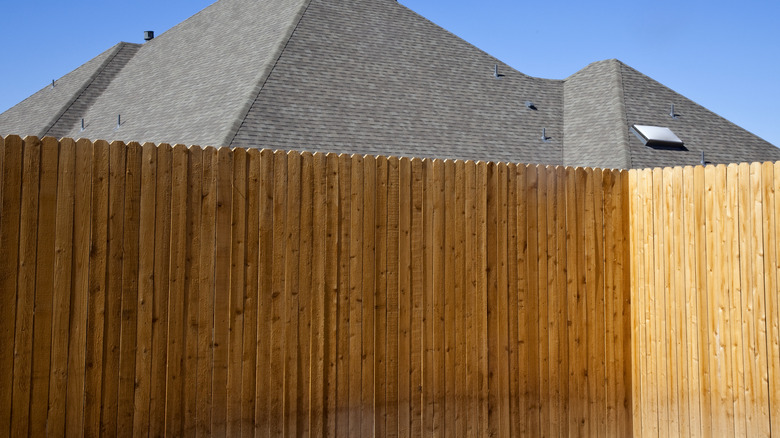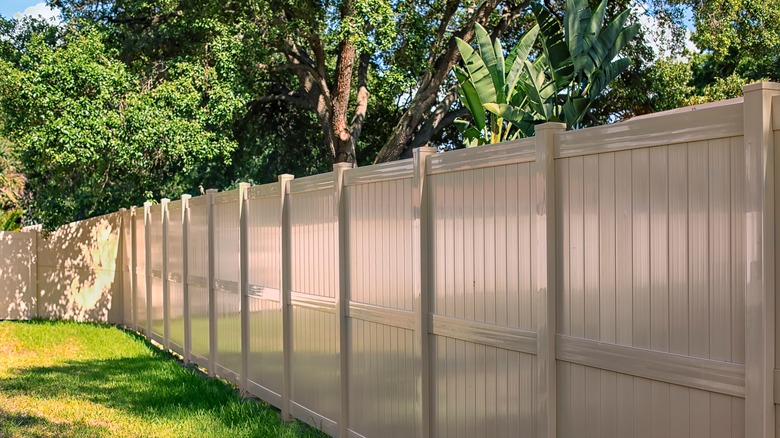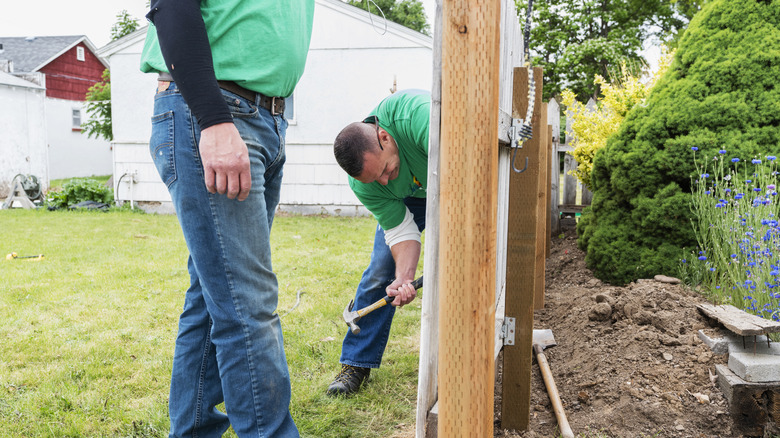How To Choose The Right Backyard Fencing For Your Family's Lifestyle
While it may seem like an innocuous choice at first, determining what style of fence your home needs and selecting the right material for your backyard is a matter of looking at your family's lifestyle to see what suits your needs and wants the best. Some fencing materials work better than others depending on what you hope to get out of your backyard, how your family plans to use the yard and fence, and what sort of effort you're willing to put in to maintain the fence. And, of course, aesthetics are important as well — the right fencing material can make or break what you want your backyard to look and feel like.
After analyzing your goals for the yard — Do you want to follow a strict budget? Do you need it to be impenetrable to animals? — and checking on other factors that may affect your home specifically — Does your homeowners association have guidelines or do you have picky neighbors? – weigh the pros and cons of all the different fence materials available. All these factors together will help you make a conscious decision that works best for your lifestyle and fits your priorities. From decay-resistant cedar to durable vinyl to low-maintenance metal, you'll find the right fit for you.
The benefits and challenges of popular fence materials
Some of the most common fencing materials on the market today include aluminum, wood, vinyl, and wrought iron. Wood fences are commonly made with teak, redwood, cedar, or treated composites. Teak and redwood are beautiful options that resist decay and pests but come at a pretty penny. These may fit best for small yards. Cedar, which is also decay-resistant, is often the most popular choice for privacy fencing. It does require more maintenance, as direct contact with soil will cause rot after several years. Treated wood is a great economical compromise. These may be best for posts only, since the planks can warp easily.
For a wood look without the maintenance, composite fences have become a popular material choice. Made from recycled plastics and hardwood fibers, these seemingly offer the best of all worlds — it's durable, low-maintenance, looks nice, and holds up well against outdoor factors. The potential downside, though, is that it does still come at a higher cost than wood and varies in quality depending on the manufacturer.
Choosing hardier materials can also save on maintenance. An extremely low-maintenance option is vinyl, which is decay- and insect-resistant, holds up well to weather, and will last for decades. However, the clean, plastic look doesn't appeal to everyone. The same visual critique can be true for aluminum or chain link, another material with great longevity. Also keep in mind that aluminum is too lightweight to hold up well in high winds. If you prefer metal, wrought iron provides a timeless, classic look, though it requires spending a tidy sum on materials and installation.
Which material works with your lifestyle?
To determine the best backyard fencing, you'll need to consider your family's lifestyle. Let's say the purpose of your fence is entirely utilitarian. Opting for a durable aluminum or chain link fence might be the best fit. If you plan on hosting parties, weddings, and cocktail hours in your backyard, you may opt for a wrought iron fence for a chic look that withstands high traffic. Wrought iron is also very strong and suits well for those looking to add fencing for security purposes. Wood and vinyl are good choices for a privacy fence so your family can enjoy the yard in peace and pets can run around without fear of escape.
Certain types of fencing instantly boost your curb appeal, so if looks are a priority, you may have to sacrifice on budget or durability. However, bear in mind that options like vinyl and composite fencing have come a long way in design, so perhaps you don't have to sacrifice as much as you may think. If cost is the main variable in a new fence install, then choosing a treated wood one is likely the winner. To really save on materials, you can even DIY a fence in your backyard with wood pallets. This takes a bit more installation work on your part, but you can always elect to change it up when the opportunity and budget allow in the future. Remember, what's right for one homeowner may not be the best for another, so make these decisions based on how you plan on using your yard.


